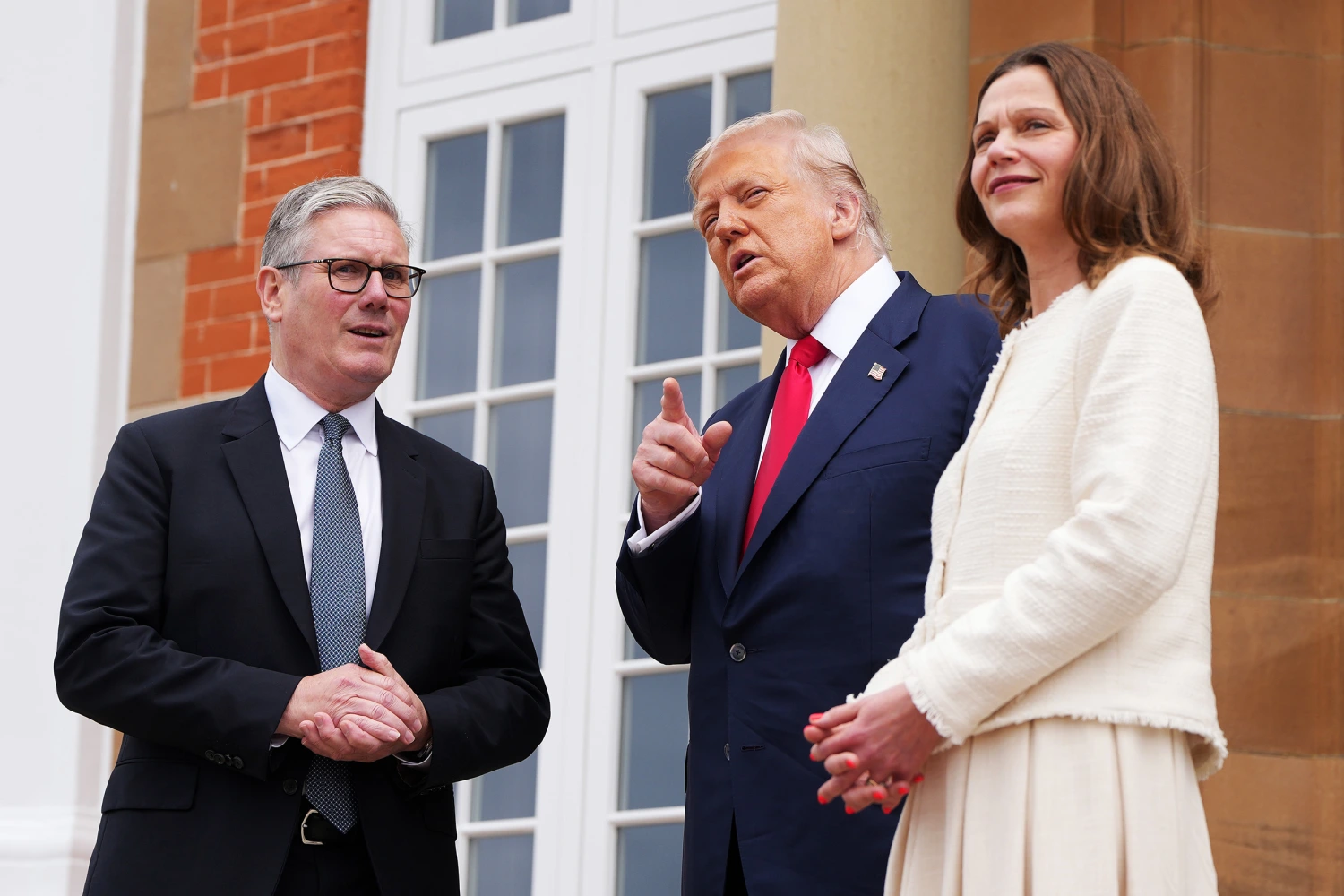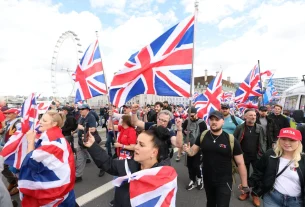Keir Starmer’s Labour Government Faces Backlash Over Free Speech Crackdown
The Labour government, led by Prime Minister Sir Keir Starmer, has come under intense scrutiny for its approach to free speech in the United Kingdom, with critics arguing that the recently implemented Online Safety Act is a thinly veiled attempt to curtail civil liberties under the pretext of protecting children online. The legislation, which came into force in stages with key provisions activated on 25 July 2025, has sparked a heated debate about the balance between safeguarding vulnerable populations and preserving the fundamental right to free expression. Critics, including free speech advocates and international figures like US President Donald Trump and Vice President JD Vance, have accused Starmer’s government of prioritising online censorship over addressing pressing real-world issues, such as child safety from physical threats, while laying the groundwork for a surveillance state.
The Online Safety Act: Protection or Censorship?
The Online Safety Act, passed in October 2023 and progressively implemented, mandates that online platforms take robust measures to prevent children from accessing harmful content, such as pornography or material promoting suicide. It grants Ofcom, the UK’s communications regulator, powers to impose fines of up to £18 million or 10% of a company’s global turnover for non-compliance with rules aimed at curbing illegal or harmful content. Starmer has defended the Act, asserting that it is not about censorship but about “child protection.” Speaking alongside Donald Trump during the US president’s visit to Scotland, Starmer stated, “We’re not censoring anyone. We’ve got some measures which are there to protect children, in particular, from sites like suicide sites”.
However, critics argue that the Act’s broad and vague definitions of “harmful content” risk overreach, enabling the government to suppress legitimate speech. The Free Speech Union has highlighted cases where individuals faced severe penalties for online activity, including an 18-month prison sentence for sharing an “offensive” Facebook post and a three-year sentence for posting “anti-establishment rhetoric”. A woman was arrested and held for 36 hours for misidentifying the Southport attacker in an X post, despite issuing an apology and correcting the mistake. Such incidents have fuelled accusations that the Labour government is fostering a “chilling effect” on free speech, a stark contrast to Starmer’s own warnings as Director of Public Prosecutions in 2013, when he cautioned against excessive prosecutions for social media posts.
Prioritising Online Content Over Real-World Threats?
A particularly contentious point raised by critics is the Labour government’s apparent focus on policing online content while allegedly neglecting more immediate threats to child safety, such as grooming gangs. The issue of so-called “Muslim rape gangs,” a term often used by right-leaning commentators to describe organised child sexual exploitation networks, has been a lightning rod in public discourse. Critics argue that the government’s emphasis on regulating social media posts contrasts sharply with its perceived inaction on addressing these real-world crimes, which have been documented in cases like Rotherham and Rochdale. While no direct evidence links the Online Safety Act to ignoring such issues, the disparity in attention has amplified public frustration, particularly among those who feel their concerns about community safety are being sidelined.
The government’s response to anti-immigration sentiment, which has surged following high-profile incidents like the Southport riots, has further intensified criticism. The creation of an elite police unit to monitor “anti-immigration” sentiment has raised alarm bells among civil liberties groups, who warn of a slide towards a “communist-style police state.” Shadow Home Secretary James Cleverly expressed discomfort with calls to tighten free speech laws, cautioning against turning Britain into an “oppressive police state”. The combination of harsh penalties for online posts and targeted monitoring of specific viewpoints has led to accusations that the Labour government is using fear and surveillance to silence dissent, particularly on issues like immigration and public safety.
Surveillance State and Tech Backdoors
Another major concern is the Labour government’s reported push for greater access to user data held by tech giants like Google and Apple. Critics argue that demands for backdoors into encrypted systems weaken cybersecurity and pave the way for a surveillance state. The Electronic Frontier Foundation (EFF) and Article 19 have criticised the Online Safety Act for enabling surveillance and undermining encryption, which they say threatens both privacy and free expression. By compelling tech companies to provide access to user data, the government could compromise the security of technologies relied upon by millions, potentially exposing personal information to misuse. Reform UK’s former chairman Zia Yusuf went further, claiming the Act grants ministers powers that “Xi Jinping himself would blush at”.
The Labour government’s digital policy agenda, as outlined by Starmer on BBC’s Newsnight, includes a broader push for online regulation, with proposals for a statutory duty of care for social media companies and potential criminal sanctions for non-compliant executives. While these measures aim to combat online harms, critics warn that they risk stifling innovation and empowering bureaucrats to police discourse arbitrarily. The global nature of the internet complicates enforcement, with some arguing that national regulations alone are insufficient without international cooperation.
International Criticism and Starmer’s Defence
Starmer’s stance on free speech has drawn international attention, particularly from the United States. During a meeting in the Oval Office, Vice President JD Vance raised concerns about “infringements on free speech” in the UK, noting their impact on American tech companies and citizens. President Trump echoed these sentiments, with his administration warning Starmer against censoring US tech firms. Starmer’s response has been consistent: “We’ve had freedom of speech in the United Kingdom for a very, very long time, and we guard it preciously”. Critics, however, argue that this rhetoric rings hollow in light of recent actions. As one commentator quipped, “Yes, Keir, we have had it for a long time, but now you are destroying it.”
The Labour government’s decision to shelve plans to ban “legal but harmful” content, initially considered after the Southport riots, was seen as a concession to US trade talks, where free speech concerns could derail negotiations. However, this retreat has done little to quell fears among free speech advocates, who point to ongoing police investigations into social media posts, including that of Telegraph columnist Allison Pearson, as evidence of overreach.
A Polarised Debate
The debate over the Online Safety Act reflects a broader tension between safety and liberty. Supporters, including children’s charities, argue that stronger regulations are essential to protect young people from online exploitation and abuse. Critics, however, warn that the Act’s vague provisions and severe penalties risk criminalising legitimate debate and fostering a climate of fear. The Free Speech Union has called for MPs to scrutinise Labour’s legislative plans, advocating a return to the English Common Law principle that speech should be permitted unless it directly incites a breach of the peace.
As Starmer’s government navigates this contentious issue, the UK’s reputation as a bastion of free speech hangs in the balance. The Labour leader’s assurances of guarding free expression “preciously” are increasingly met with scepticism, as critics argue that his policies prioritise control over liberty. With international scrutiny intensifying and domestic unrest simmering, the coming months will be critical in determining whether the UK can strike a balance between protecting its citizens and preserving their fundamental rights.



